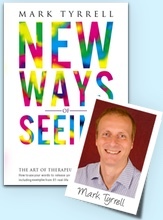Personality disorders
DSM Classification
(The psychiatry bible)
Personality disorder
An enduring pattern of inner experience and behavior that deviates markedly from the expectations of the culture of the individual who exhibits it.
Sensible Psychology Definition
Obviously not fitting in with the people around you
This can happen if you are highly individual, eccentric, bloody-minded or just more passionate about certain things than other people. If the difference is very sharp, it can cause problems.
The problem with the ‘personality disorder’ label
If we were to go by the DSM definition, all the great thinkers or men and woman of action were ‘personality disordered’. Visionaries who dared to question the establishment, such as Darwin, Galileo, Gandhi, or Picasso, and who clearly ‘deviated markedly’ from what people around them expected of them could easily be regarded as falling within the diagnostic criteria for personality disorder.
Some people are awkward though, aren’t they? But can or should bloody-mindedness, eccentricity or a passionate nature be branded as ‘disorders’?
You’ll find some of the sub-categories of personality disorder (such as avoidant personality disorder and narcissistic personality disorder ) described in separate entries. These categories are not entirely without use. There are different types of people with recognizable personality traits that can cause them (and others) enduring problems. And some of the categorizations of personality type do hold good – for example, there is evidence that ‘sociopathic personality disorder’ or ‘psychopathy’ may result from real differences in brain structure. (1)
But being labelled as ‘personality disordered’ brings its own particular set of problems.
Personality disorder: a suitable case for treatment?
A ‘personality disordered’ person is seen as difficult to treat because the problem is the person. Their character traits continually cause them and other people problems (teenagers, anyone?). What’s more, their emotional and behavioural reactions to events will seem entirely appropriate to them, because they arise from who they fundamentally are.
But labelling is a problem. Tagging someone with, for example, a ‘depressive personality disorder’ merges the person’s ‘core identity’ with the misery they are experiencing.
If we believe that the on-going depressed feelings we are experiencing are not ‘just an episode’ but a manifestation of a central part of our character, who we essentially are, then such a belief may prolong the depression (or even make it permanent). This is particularly likely if this diagnostic belief is shared by professionals.
So just how accurate is this kind of diagnosis?
Running the gauntlet of labels
Some psychiatric patients we’ve met have had more psychiatric diagnoses than Elizabeth Taylor had husbands. One woman told us that in 1988 she was diagnosed as ‘schizoid’, then in 1993 ‘bi-polar’, then a little later had been gifted the label ‘antisocial personality disorder’, followed by ‘narcissistic personality disorder’ before finally being branded ‘paranoid’. “I’ve been anything you care to mention!” she said, amazingly calmly.
The personality classifications listed in the DSM simply do not fit neatly into clearly distinguishable categories.(2) Rather, the categories blend and mix so that overlap is the rule rather than the exception.
This can make diagnosis all but meaningless.
Another complication is that syndromes can arise from different causes. ‘Antisocial personality disorder’ (which can lead to criminal behaviour) may be the result of brain damage, an abusive background, or peer pressure, but regardless of the root cause it is given the same label, and quite possibly the same treatment. This looks a lot less scientific.
The sensible psychology view
Some people are more self obsessed (‘narcissistic?’), others more timid (‘avoidant’?), others more emotionally sensitive or even dramatic (‘histrionic’?). There are many categories and sub-categories of personality disorders in the DSM, but when you get right down to it, people do just have differing personalities, some of which can leave us feeling frazzled.
There may indeed be a few genuine ‘personality disorders’, such as ‘sociopath’, but the drawbacks of this approach to psychiatric categorizing, as we see it, are threefold:
- Firstly, ‘personality’ just doesn’t fit easily into clear distinguishable categories.
- Secondly, a dysfunctional label that strongly implies that all your problems stem from what you are rather than what you do tends to make change seem so impossibly difficult – both to the professionals who are there to help and to the individual who has been given that label – as to be almost not worth attempting.
- Thirdly, every quirk of individuality can come to be seen through the diagnostic lens of ‘personality disorder’, from innocent eccentricity to ‘difficult behaviour’ brought on through stubborn refusal to accept a personality disorder diagnosis.
Finding ever more facets of human variety to treat as ‘disorders’ helps no one.
We believe that it’s much more useful to focus on helping people learn how to get on with those who are different from themselves.
Notes:
- See: “No strings on me: Is there a psychopath in your life?“
- Cloninger CR, “A New Conceptual Paradigm from Genetics and Psychobiology for the Science of Mental Health,” Australian and New Zealand Journal of Psychiatry 33, no. 2 (1999); and Haslam N, “Categorical Versus Dimensional Models of Mental Disorder: The Taxometric Evidence,” Australian and New Zealand Journal of Psychiatry 37, no. 6 (2003).







